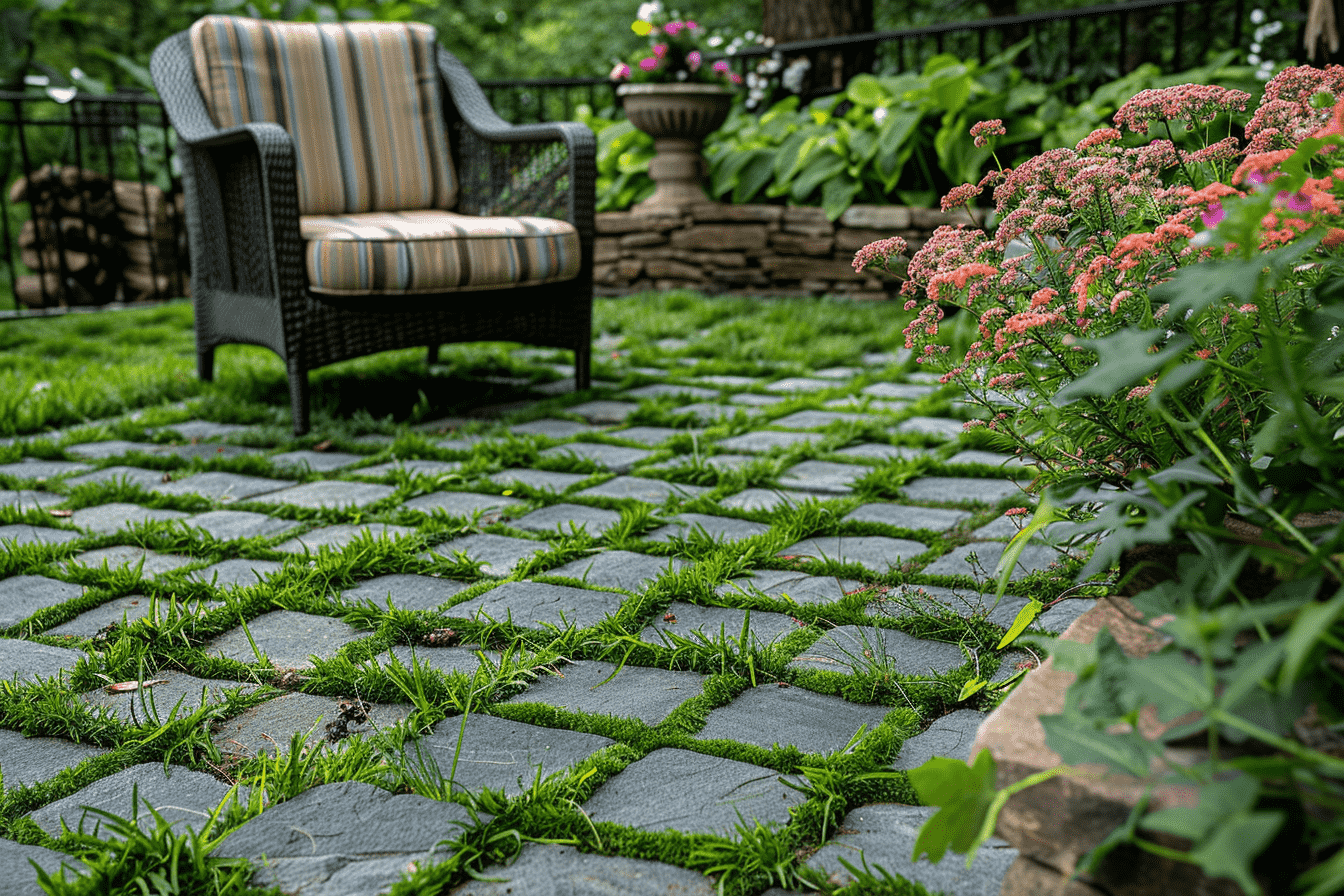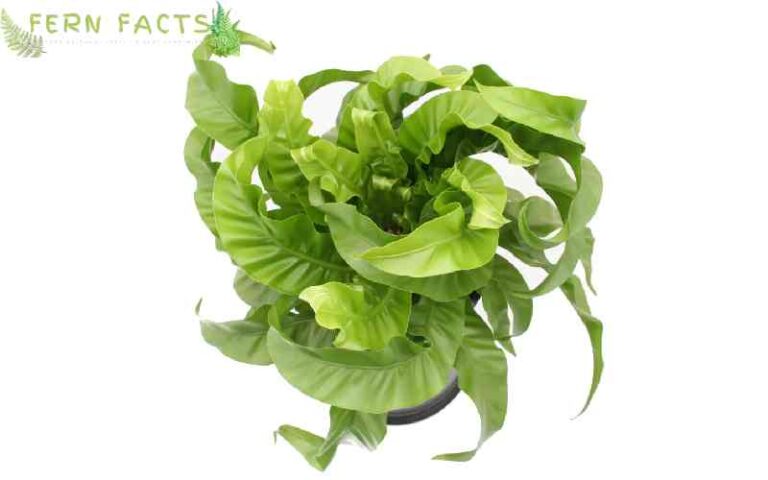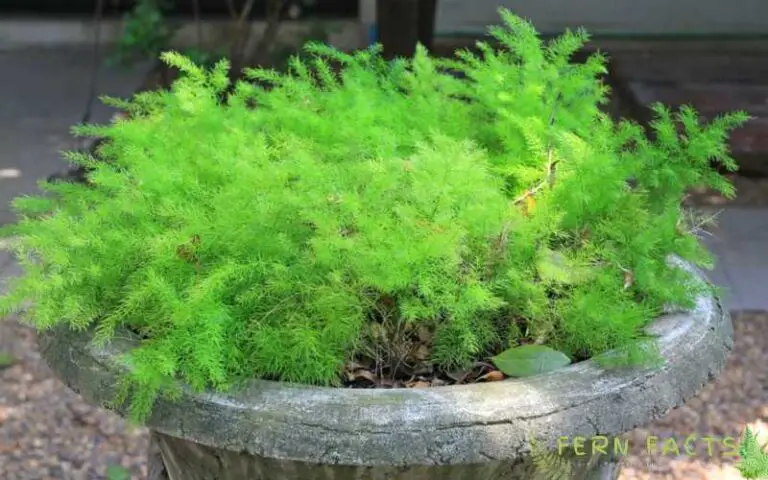Everything You Need to Know About Grass Block Pavers
Grass block pavers are eco-friendly paving solutions that combine concrete grids with grass. They offer permeability and a natural look.
Grass block pavers are ideal for driveways, parking areas, and pathways. These pavers support soil permeability and reduce stormwater runoff, making them environmentally beneficial.
They blend concrete’s durability with grass’s natural aesthetics, providing a green alternative to traditional paving methods.
Installation is straightforward, and maintenance is minimal, requiring occasional mowing and weeding. Grass block pavers are versatile and can support light to moderate traffic.
They enhance property value and curb appeal while promoting sustainability.
These pavers offer a practical and attractive paving solution, perfect for both residential and commercial use.
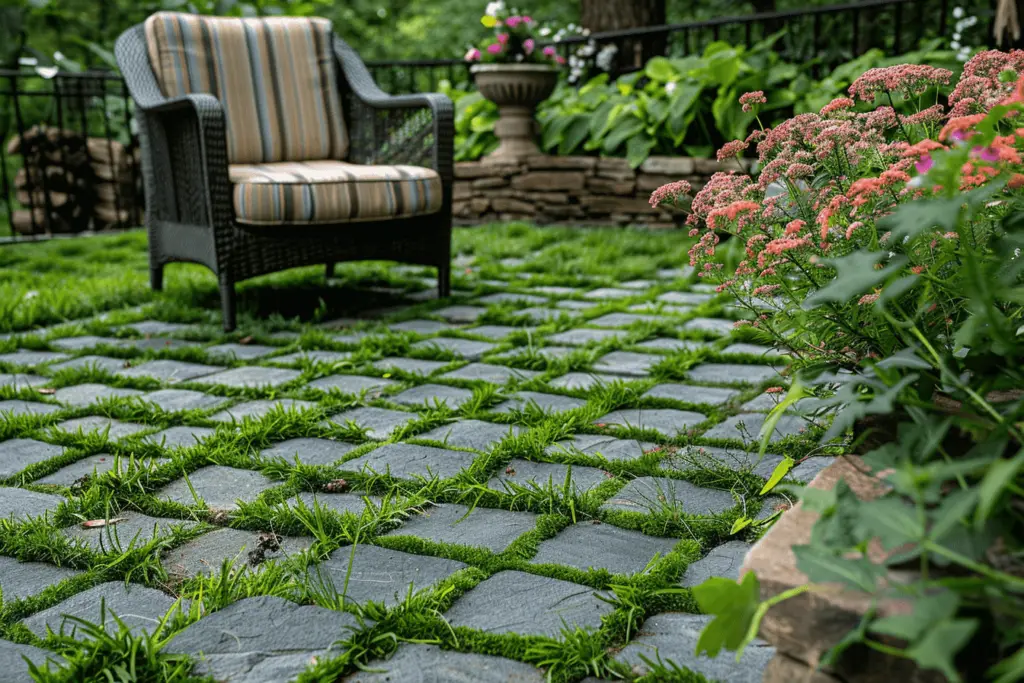
Design And Installation
Grass block pavers are eco-friendly for driveways, walkways, and patios. They combine the strength of concrete with the beauty of grass, creating a sustainable and stylish surface.
The design and installation process ensures these pavers look great and function well.
Different Types Of Grass Block Pavers
There are several types of grass block pavers, each offering unique benefits and styles. Choosing the right one depends on your needs and preferences.

Concrete Grass Pavers: These are the most common. They offer durability and strength, which are ideal for high-traffic areas.
- They have open cells filled with soil and grass.
- They are strong enough to support vehicles.
Plastic Grass Pavers: These are lightweight and easy to install. They are perfect for residential areas and light traffic.
- They are made from recycled materials.
- They are flexible and can be cut to fit any space.
Permeable Grass Pavers: These allow water to pass through, reducing runoff and promoting groundwater recharge.
- They help prevent flooding.
- They are ideal for areas with heavy rainfall.
The table below summarizes the key features of each type:
| Type | Material | Best Use |
|---|---|---|
| Concrete Grass Pavers | Concrete | High-traffic areas |
| Plastic Grass Pavers | Recycled Plastic | Residential, light traffic |
| Permeable Grass Pavers | Various | Areas with heavy rainfall |
Installation Process
The installation process for grass block pavers involves several steps. Each step is crucial for a strong and long-lasting surface.

Step 1: Preparing the Ground: The ground must be level and debris-free. This ensures a smooth and stable base.
- Remove any existing grass or plants.
- Level the ground using a rake.
- Compact the soil to prevent settling.
Step 2: Laying a Base: A solid base is essential for stability. Crushed stone or gravel works best.
- Spread a layer of crushed stone.
- Compact the stone using a tamper.
- Add a layer of sand on top.
Step 3: Placing the Pavers: Arrange the pavers in the desired pattern. Ensure they are level and evenly spaced.
- Place the pavers on the sand base.
- Check for levelness as you go.
- Fill the gaps with soil or gravel.
Step 4: Planting Grass: Fill the cells of the pavers with soil. Plant grass seeds or lay sod to complete the look.
- Water the grass regularly to promote growth.
- Trim the grass to keep it neat.
Following these steps ensures your grass block pavers are both beautiful and functional. Proper installation enhances durability and reduces maintenance needs.
Environmental Impact Of Grass Block Pavers
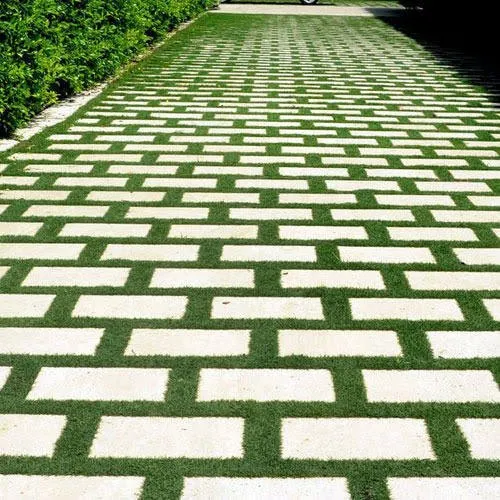
Grass block pavers are an innovative solution for paving needs. They are not only functional but also have a positive environmental impact.
These pavers combine the strength of concrete with the natural benefits of grass, offering an eco-friendly alternative for driveways, walkways, and parking lots.
The environmental impact of grass block pavers is significant, promoting sustainability and enhancing the natural ecosystem.
Permeability And Drainage
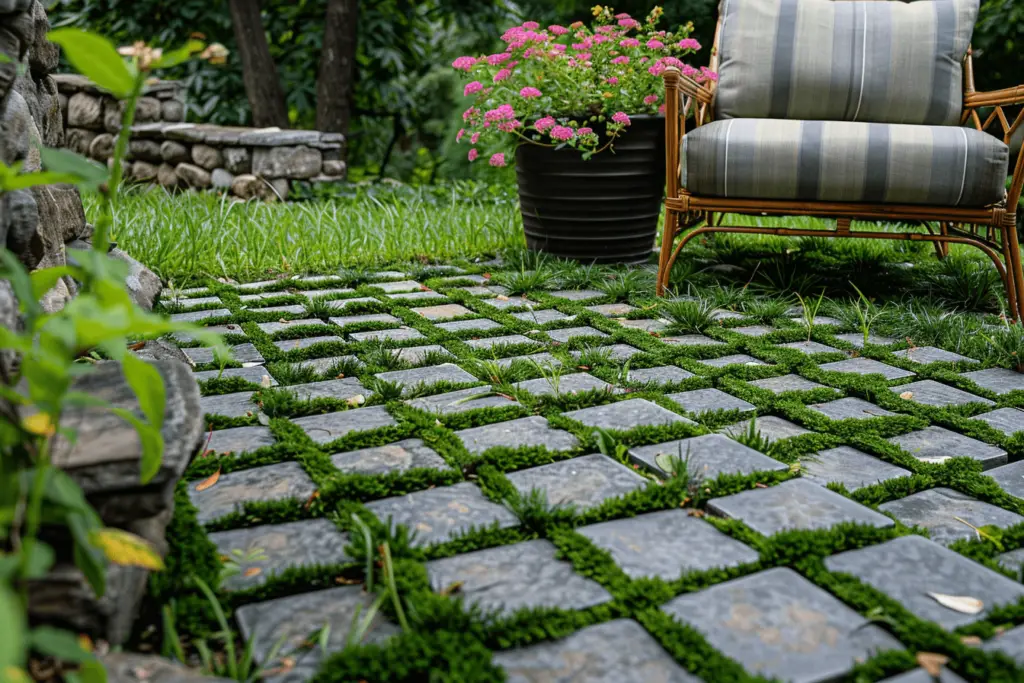
Grass block pavers excel in permeability and drainage. Unlike traditional concrete or asphalt, these pavers allow water to seep through the gaps, reducing runoff and promoting groundwater recharge.
This feature is crucial in urban areas where stormwater management is a challenge.
- Water Infiltration: Grass block pavers enable water to infiltrate directly into the soil, reducing surface water and the risk of flooding.
- Groundwater Recharge: By allowing water to seep through, these pavers help replenish groundwater levels, supporting local water resources.
- Reduced Runoff: Less runoff means fewer pollutants entering storm drains and waterways, improving water quality.
Let’s compare traditional paving with grass block pavers:
| Feature | Traditional Paving | Grass Block Pavers |
|---|---|---|
| Water Permeability | Low | High |
| Runoff Reduction | Minimal | Significant |
| Groundwater Recharge | None | Substantial |
Erosion Control
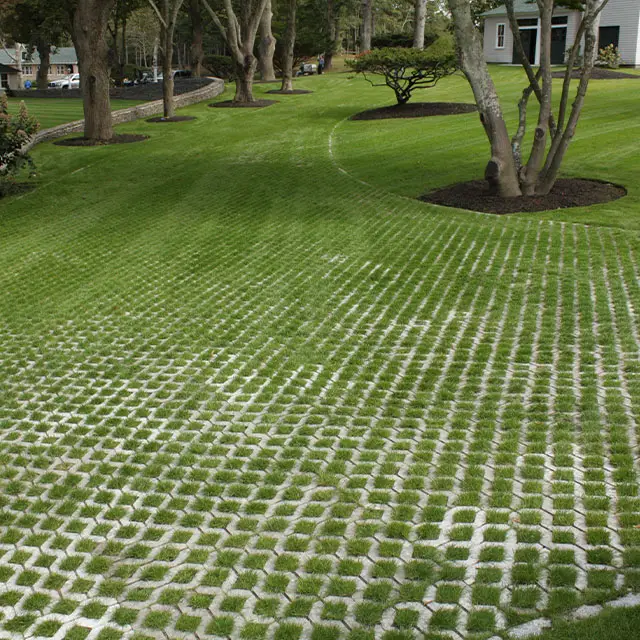
Grass block pavers play a vital role in erosion control.
Their design helps stabilize the soil and prevent erosion, making them ideal for sloped areas and locations prone to soil displacement.
- Soil Stabilization: The interlocking structure of grass block pavers holds the soil in place, reducing erosion.
- Vegetation Growth: The spaces between the pavers allow grass or other vegetation to grow, further anchoring the soil.
- Surface Integrity: These pavers maintain surface integrity, preventing the formation of ruts and gullies.
Key benefits of erosion control with grass block pavers include:
- Reduced Soil Loss: Less soil erosion means maintaining the landscape and protecting the environment.
- Enhanced Aesthetics: Vegetation growth through the pavers adds to the area’s natural beauty.
- Improved Durability: Grass block pavers provide a durable, long-lasting solution for erosion-prone areas.
The combination of these features makes grass block pavers an excellent choice for environmentally conscious landscaping and paving projects.

Maintenance And Longevity
Grass block pavers are a versatile and eco-friendly choice for driveways, patios, and walkways. They combine the durability of concrete with the natural beauty of grass.
Understanding the maintenance and longevity of grass block pavers ensures they remain functional and aesthetically pleasing for years.
Routine Maintenance
Proper maintenance of grass block pavers is essential to keep them in top condition. Routine upkeep is simple and can be done without special tools.
Here are some key steps:
- Regular Cleaning: Remove debris, leaves, and dirt from the pavers. Use a broom or a garden hose for easy cleaning.
- Weed Control: Weeds can grow between the pavers. Pull them out by hand or use a non-toxic weed killer.
- Grass Trimming: The grass within the pavers needs regular mowing. Use a string trimmer or lawnmower to keep it even.
- Watering: Ensure the grass stays green and healthy. Water the area during dry spells.
- Filling Gaps: Over time, soil and sand may shift. Refill gaps with sand or soil to maintain stability.
These maintenance tasks are straightforward and can be done periodically. Regular attention helps prevent larger issues and keeps the pavers looking fresh.
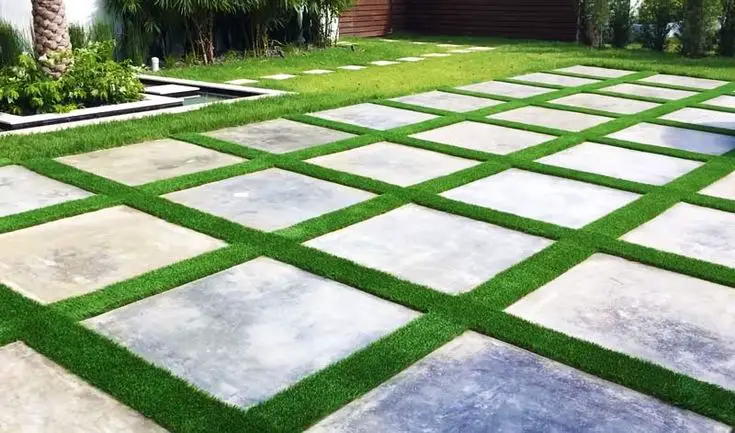
Expected Lifespan
Grass block pavers are designed to last many years. Their lifespan depends on several factors: installation quality, climate, and maintenance.
You can expect grass block pavers to last between 20 to 30 years.
Here are some factors that influence their longevity:
- Installation Quality: Proper installation ensures a solid foundation. This prevents shifting and uneven surfaces.
- Climate Conditions: Extreme weather can affect the pavers. In cold climates, freeze-thaw cycles may cause cracks.
- Traffic Load: Heavy vehicles can wear down the pavers faster. For driveways, choose pavers designed for higher loads.
To maximize the lifespan of grass block pavers, follow these tips:
- Choose Quality Materials: High-quality pavers are more durable and resistant to wear.
- Ensure Proper Drainage: Good drainage prevents water accumulation, reducing the risk of damage.
- Conduct Regular Inspections: Check for signs of wear and address issues promptly.
By paying attention to these details, grass block pavers can remain a beautiful and functional part of your landscape for decades.
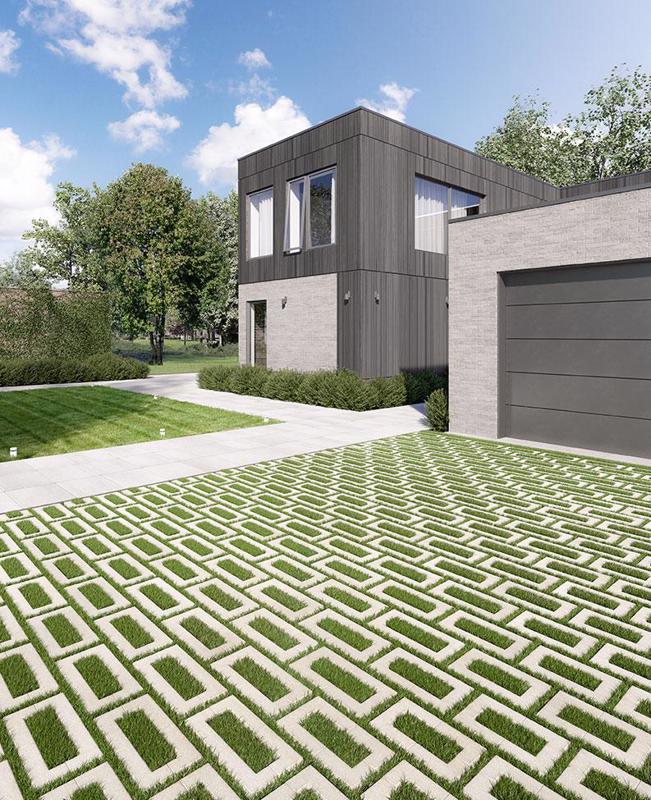
Applications
Grass block pavers are a sustainable solution for creating eco-friendly surfaces. They offer a blend of durability and aesthetics.
These pavers are ideal for various applications, enhancing both residential and commercial spaces.
Let’s explore their versatile uses.
Residential Use
Grass block pavers are perfect for residential properties. They create attractive driveways, patios, and walkways. Homeowners love them for their aesthetic appeal and environmental benefits.
Some common residential applications include:
- Driveways: They provide a strong surface that supports vehicle weight while allowing grass to grow.
- Patios and Walkways offer a natural look, blending seamlessly with garden landscapes.
- Backyard Seating Areas: They make cozy and green seating spaces ideal for outdoor gatherings.
Benefits of using grass block pavers in residential settings:
- Eco-Friendly: They promote water infiltration, reducing runoff and erosion.
- Low Maintenance: They require minimal upkeep compared to traditional concrete or asphalt.
- Enhanced Aesthetic: They add a natural, green touch to home environments.
Here’s a simple comparison table:
| Feature | Grass Block Pavers | Concrete |
|---|---|---|
| Water Permeability | High | Low |
| Maintenance | Low | Moderate |
| Aesthetic Appeal | Natural | Industrial |
Commercial Use
Grass block pavers also shine in commercial applications. They provide durable and eco-friendly surfaces for various businesses and public spaces.
Their unique design supports heavy loads, making them suitable for parking lots and access roads.
Common commercial uses include:
- Parking Lots: They create green parking spaces that support heavy vehicles.
- Access Roads: They provide sturdy paths for service vehicles while maintaining a natural look.
- Public Parks: They enhance pathways, offering a blend of durability and greenery.
Benefits of using grass block pavers in commercial settings:
- Environmental Impact: They reduce heat islands and improve stormwater management.
- Cost-Effective: They lower long-term maintenance costs due to their durability and low upkeep.
- Versatility: They are suitable for various commercial applications, from small businesses to large public spaces.
Here’s a quick overview of their benefits:
| Application | Benefit |
|---|---|
| Parking Lots | Durable, eco-friendly, reduces heat |
| Access Roads | Strong, supports heavy vehicles |
| Public Parks | Enhances aesthetics, durable |
Comparison With Traditional Paving
Grass block pavers offer a unique alternative to traditional paving solutions. They blend functionality and aesthetics, making them an excellent choice for homeowners and businesses.
This section compares grass block pavers with traditional paving options like concrete and asphalt.
Environmental Impact
Grass block pavers are eco-friendly. They allow rainwater to seep into the ground, reducing runoff and preventing flooding.
Traditional paving, like concrete, doesn’t absorb water, which can lead to drainage issues.
Grass block pavers:
- Promote groundwater recharge
- Reduce the urban heat island effect
- Are made from recycled materials
Traditional paving methods contribute to environmental degradation. They use non-renewable resources and generate significant heat. Below is a comparison table:
| Feature | Grass Block Pavers | Traditional Paving |
|---|---|---|
| Water Absorption | High | Low |
| Heat Generation | Low | High |
| Material Source | Recycled | Non-renewable |
Aesthetic Appeal
Grass block pavers enhance the beauty of any landscape. They provide a natural look that blends seamlessly with greenery.
Traditional paving, on the other hand, often looks monotonous and industrial.
Benefits of grass block pavers:
- Visually pleasing
- Customizable designs
- Blend with natural surroundings
Traditional paving options like asphalt or concrete lack customization. They usually come in limited colors and designs.
Grass block pavers offer a wide range of patterns and layouts, making them versatile.
Using grass block pavers can also increase property value. Homeowners appreciate the unique look and eco-friendly benefits.
It’s a win-win situation for both aesthetics and functionality.
Challenges And Considerations
Grass block pavers are eco-friendly for driveways, parking lots, and pathways. They combine concrete or plastic grids with grass, allowing for a green, permeable surface.
While these pavers have many benefits, they also have challenges and considerations. Understanding these can help you make the best decision for your project.

Weed Management
Weed management is one of the primary concerns with grass block pavers. Weeds can easily find their way into the gaps, affecting the aesthetic and functionality of the pavers.
Here are some strategies to manage weeds effectively:
- Pre-emergent Herbicides: Apply these before installing the pavers to prevent weed seeds from germinating.
- Regular Maintenance: Regular mowing and trimming can keep weeds at bay.
- Mulching: Use organic mulch between the gaps to suppress weed growth.
Combining these methods can help maintain the beauty and functionality of your grass block pavers.
Additionally, consider the type of grass you are using, as some varieties are more weed-resistant.
| Method | Effectiveness | Maintenance Required |
|---|---|---|
| Pre-emergent Herbicides | High | Low |
| Regular Maintenance | Medium | High |
| Mulching | Medium | Medium |
Load-bearing Capacity
The load-bearing capacity of grass block pavers is another crucial consideration. These pavers need to support vehicles and foot traffic without getting damaged.
Here are some factors to think about:
- Material Quality: Choose high-quality concrete or plastic grids for better durability.
- Base Preparation: A well-prepared base can distribute weight more evenly.
- Grid Design: Opt for a grid design that supports heavier loads.
For areas with heavy traffic, consider using a more robust grid system.
The type of soil and the climate can also affect the load-bearing capacity. Ensure you consult with a professional to assess these factors.
| Factor | Impact on Load-Bearing Capacity |
|---|---|
| Material Quality | High |
| Base Preparation | Medium |
| Grid Design | High |
| Soil Type | Medium |
| Climate | Low |
Understanding these factors will help you choose the right grass block pavers for your needs. Proper installation and maintenance can significantly enhance their load-bearing capacity.
Future Trends
Grass block pavers are revolutionizing how we think about landscaping and urban planning. As we move forward, exciting future trends are emerging in this field.
These trends promise to make grass block pavers more efficient, eco-friendly, and adaptable to modern needs. Let’s explore some of these future trends in detail.
Technological Innovations
Technological advancements are shaping the future of grass block pavers. Smart pavers are one such innovation.
These pavers can monitor and manage water flow, ensuring optimal moisture levels for the grass. Embedded sensors can detect soil health, temperature, and humidity.
This data helps maintain lush green grass with minimal effort.
Another innovation is the development of self-healing materials. These materials can repair cracks and damages automatically.
This reduces maintenance costs and extends the lifespan of the pavers. Nanotechnology is also being integrated into grass block pavers.
This technology enhances the strength and durability of the pavers.
Here’s a table summarizing some of the key technological innovations:
| Innovation | Benefits |
|---|---|
| Smart Pavers | Monitors water flow and soil health |
| Self-Healing Materials | Reduces maintenance costs |
| Nanotechnology | Enhances strength and durability |
Sustainable Practices
Sustainability is a key trend in the development of grass block pavers. Recycled materials are increasingly being used to create these pavers.
This reduces waste and conserves natural resources. Permeable surfaces allow water to seep through, reducing runoff and promoting groundwater recharge.
Another practice is the use of native grass species. These species are better adapted to local climates and require less water and maintenance.
Green manufacturing processes are also being adopted. These processes minimize carbon emissions and energy consumption.
Here are some sustainable practices in grass block pavers:
- Using recycled materials
- Creating permeable surfaces
- Planting native grass species
- Adopting green manufacturing processes
In summary, the future of grass block pavers looks promising with these innovations and sustainable practices.
These trends not only improve functionality but also benefit the environment.

Frequently Asked Questions
What Are The Disadvantages Of Grass Pavers?
Grass pavers can be expensive to install. They require regular maintenance and can become slippery when wet. Heavy traffic may damage them.
They may not be suitable for steep slopes. Weeds can grow between the pavers, needing frequent upkeep.
What is the maintenance of grass block paving?
Grass block pavers need occasional mowing and watering. Remove weeds regularly to maintain appearance. Inspect for damage periodically.
What Are Grass Block Pavers?
Grass block pavers are eco-friendly paving solutions. They consist of concrete grids filled with soil and grass.
These pavers allow water drainage and reduce erosion. They blend greenery with functionality in driveways, walkways, and parking lots.
What Are The Bricks That Grass Can Grow Through?
Permeable pavers and grass pavers are bricks that allow grass to grow through. These eco-friendly options support drainage and greenery.
Conclusion
Grass block pavers offer an eco-friendly and visually appealing solution for landscaping. They reduce runoff and support green spaces.
Investing in these pavers enhances sustainability while adding charm to your property.
Choose grass block pavers for a greener, more beautiful outdoor space that benefits both you and the environment.

